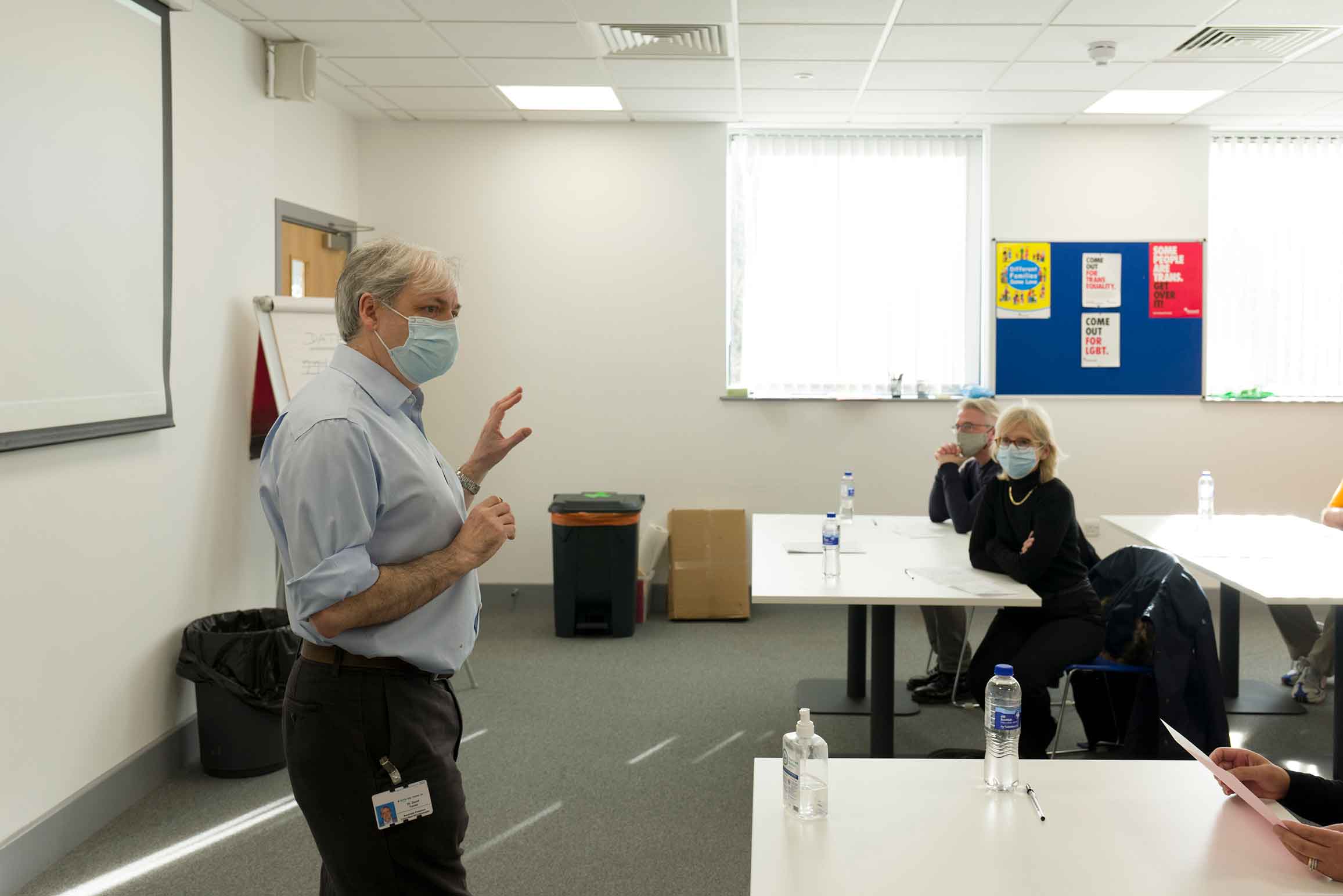Participants have received their first vaccine at Cripps Health Centre at the University of Nottingham, as part of the world's first COVID-19 vaccine study researching alternating doses and intervals of approved vaccines.
One hundred and eleven participants turned out last week to receive their first vaccines as part of the National Institute for Health Research (NIHR)-supported study.
The aim of the study is to determine the effects of using a different vaccine for the second dose to the first dose, in addition to two different intervals between doses.

The study, classified as an Urgent Public Health study by the NIHR, is being undertaken by the National Immunisation Schedule Evaluation Consortium (NISEC) and the Oxford Vaccine Group, and is backed by £7 million of government funding from the Vaccines Taskforce.
The volunteers, aged 50-years-old and above, have been recruited to take part in the study referred to as the COVID-19 Heterologous Prime Boost study, or 'Com-Cov'.
The study will gather immunological evidence on different intervals between the first and second dose for a mixed-vaccine regimen against control groups when the same vaccine is used for both doses.
Dame Professor Jessica Corner, Pro-Vice Chancellor for Research and Knowledge Exchange at the University of Nottingham, was one of the participants to receive the first vaccination as part of the trial.
I am so pleased to be involved in a study which is asking crucial questions about the efficacy of combining different vaccines and the important question of the timing of the booster injection. From a personal perspective, it is great to be able to contribute in a very small way to the efforts scientists and medics across the globe have been making towards vaccine development. In my professional role, I am very proud to see such world-leading work being done from the University of Nottingham Health Service. This is just one of numerous studies that have already been carried out here, and it is a real team effort. I'm looking forward to taking part and to seeing the benefits of these alternating doses."
The clinical study will monitor the impact of the different dosing regimens on patients' immune responses, and whether this can be a viable route to increase the flexibility of the UK's vaccination programme. It has received ethics approval, as well as approval from the Medicines and Healthcare products Regulatory Agency (MHRA) to commence.
Should the study show promising results, then the government may consider reviewing the vaccine regimen approach if needed, but only if proven to be safe and recommended by the Joint Committee on Vaccination and Immunisation (JCVI).
Professor David Turner from the University of Nottingham, and Honorary Consultant in Clinical Microbiology at Nottingham University Hospitals NHS Trust, and Principle Investigator on the study, said: "We are delighted to be taking this study forward. Having been one of the centres that has was involved in the development of the Oxford AstraZeneca vaccine, it is now exciting to take development further and to see if by alternating both vaccines, their effectiveness is the same. This could have huge implications in terms of easing demand if so."
Dr Simon Royal, Honorary Assistant Professor, in the School of Medicine, Division of Primary Care, at the University, and Research Lead at the University of Nottingham Health Service, said: "I am delighted to be a part of such a marvellous team, bringing research of national and global importance to a general practice in the East Midlands."






